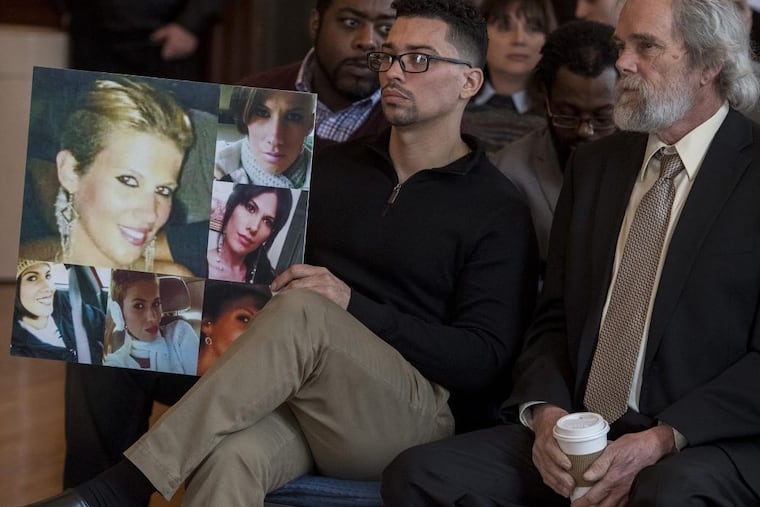N.J. medical marijuana panel: Allow 43 more conditions - including autism and anxiety
The panel said the state should open the door to many more patients to obtain cannabis for a variety of ailments, including opiate use disorder and Alzheimer's. Now it's up to the health commissioner and a decision could wait for months.

If you're one of the nearly 200,000 people in New Jersey who suffer from chronic pain, migraines, anxiety, opiate-use disorder, arthritis, Alzheimer's disease, autism, Tourette syndrome and a few other ailments, you should be allowed to obtain medicinal marijuana, with the consent of your doctor.
At least that's what the state's Medicinal Marijuana Review Panel says, after studying petitions from doctors and people who suffer from those conditions, and then holding two hearings over the past 12 months. It issued its first report last week, seeking that 43 more conditions be permitted for treatment.
But it may be a while before the state health commissioner rules on the request, a slow process that has angered potential new patients and their advocates.
New Jersey's rigid, seven-year-old medical marijuana program permits only those afflicted with one of a dozen conditions to obtain cannabis. Among the approved conditions are terminal cancer, multiple sclerosis, epilepsy, glaucoma, Crohn's disease, and muscular spasticity.
Only 13,200 patients have enrolled in the program, which is considered one of the most restrictive of those in the 29 states with such programs. There are five dispensaries in New Jersey; a sixth is expected to open this year.
"The decision as to who qualifies doesn't seem to be rooted in the science, and seems to be arbitrary and politicized," said Amanda Hoffman, a Franklin Park, Somerset County, resident who testified at the panel's hearing in February.
"I don't want to say that I'm fortunate, but my condition, ulcerative colitis, qualifies me to be a medical marijuana patient. But many others are locked out of the program because their ailment doesn't qualify," she said in an interview this week.
Hoffman requested the panel make migraines an eligible condition. She noticed that after she started using cannabis, her migraines lessened; she wanted others who suffer from the debilitating headaches to get the same relief.
Health Commissioner Cathleen D. Bennett will make the final decision, but it could be months away. There is a two-month comment period on the recommendations.
After the panel held its second hearing in May, it voted, 5-1, to recommend that the commissioner open the door to more patients. Based on the petitions, the panel suggested 43 new conditions for the list, including variations of certain diseases and ailments. It said cannabis should be available to people suffering from chronic pain that arises from surgeries, injuries, back and neck problems and other medical problems.
Alex Bekker, an anesthesiologist who chaired the panel, said after the hearing that the testimony was often emotional and was supported by facts and some existing medical literature. Bekker, who heads the department of anesthesiology at Rutgers New Jersey Medical School in Newark, said the panel wanted to allow more patients to get access to cannabis if they and their doctors believe it might help alleviate their pain.
Pennsylvania, which is planning to launch its medical marijuana program next year, already includes chronic pain and autism among its list of eligible conditions.
One year ago, the New Jersey panel invited the public to submit petitions and evidence that cannabis can alleviate certain symptoms and conditions.
Last week, it posted its first report on the health department's website, but said that these were just initial recommendations. The public will have 60 days to comment on the panel's findings. After that, another hearing — which has yet to be scheduled — will be held. Then, a final recommendation would be formally submitted to Bennett.
"The commissioner has to review the recommendations and rule on them, so the department has no comment at this time," said Donna Leusner, a spokesperson for the commissioner, in an email asking for comment.
But Ken Wolski, executive director of the Coalition for Medical Marijuana New Jersey, said the commissioner has the discretion under existing law to add conditions to the list. He said the coalition submitted a petition to the health department to add post-traumatic stress syndrome to the list in 2014, but the petition was rejected.
Last year, the state legislature passed a bill to make PTSD an eligible condition, bypassing the health department. Gov. Christie reluctantly signed it after saying on several occasions that he did not want to expand the program because he views marijuana as a gateway drug.
"I'm very happy with the panel's initial recommendations," Wolski said. "But I am distressed with the pace. … The panel determined its recommendation on May 11, but then it takes 2½ months before it's posted on the website? That's an unconscionable delay and works to the detriment of patients who are suffering and want to get legal access to medical marijuana."
A Quinnipiac poll in February found that 93 percent of Americans support medical marijuana and 59 percent favor full legalization.
Roseanne Scotti, director of the Drug Policy Alliance in New Jersey, also said she is disappointed that the panel decided to hold a third hearing before issuing a final report. "Well, it certainly is taking a long time to add conditions, and the law took effect right before Gov. Christie took office," she said. "No one expected that seven years later we would still be waiting. Patients are waiting to get their medicine."
Last month, the sixth and last nonprofit granted approval by the state department in 2011 to open a dispensary finally received a permit to begin growing marijuana. Harmony Foundation in Secaucus is expected to open later this year.
Among the other dispensaries are two that operate in South Jersey, out of former warehouses in Bellmawr and Egg Harbor Township.